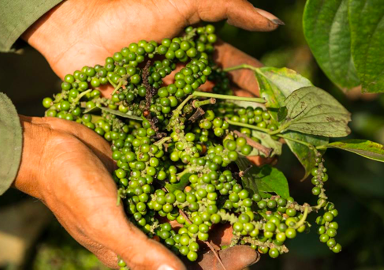

Spices, including peppercorn, are associated with complex and diverse supply chains which starts from large to small- scale farmers (producers) and reach to processors/shipper through many intermediaries i.e. collector, middleman etc. The aggregation and redistribution of these products at various stages along the supply chain contributes to a high food safety risk profile. Spices are vulnerable to a number of food safety risks: excessive pesticide residue levels; pathogen contamination (i.e. Salmonella); adulteration and substitute. These spices are also exposed to dust, dirt, insects, and animal waste before and after harvest due to poor sanitation and food handling practices. Further farmers in this region also faces phytosanitary issues like pest and disease i.e. Phytophthora foot rot and slow decline diseases.
SPS issues
Analysis of SPS issues in exported peppercorn suggests that all the main food safety and hygiene related non-compliances (i.e. high MRL, bacterial and physical contamination), result from either poor farm level decisions or handling practices. Most of the village level activities at production, harvesting, drying and initial storage were identified as the point of breakdown in SPS control. These non-compliances can be corrected with improved practical capacity development of famer and creating a conducive environment to encourage them to adopt the improved practices.Lost income resulting from threats to market access due to poor compliance of customer standards
Potential health risk to consumers (including farmers), particularly with spices such as peppercorn that are widely used in most savoury recipes
The project aims to combat SPS issues related to food safety and improve the quality and traceability in the production, post-harvest, processing and trade of peppercorn. This will be achieved by identifying, developing and disseminating good practices that focus on village level peppercorn production. A code of practice (CoP) will be designed around codex standards to address the identified SPS issues with peppercorn. An implementation model for the CoP will be developed based on the Participatory Guarantee System (PGS) to production of safe produce by building social cohesion, peer-to-peer learning and awareness of responsibility towards the community.

 BACKGROUND
BACKGROUND



